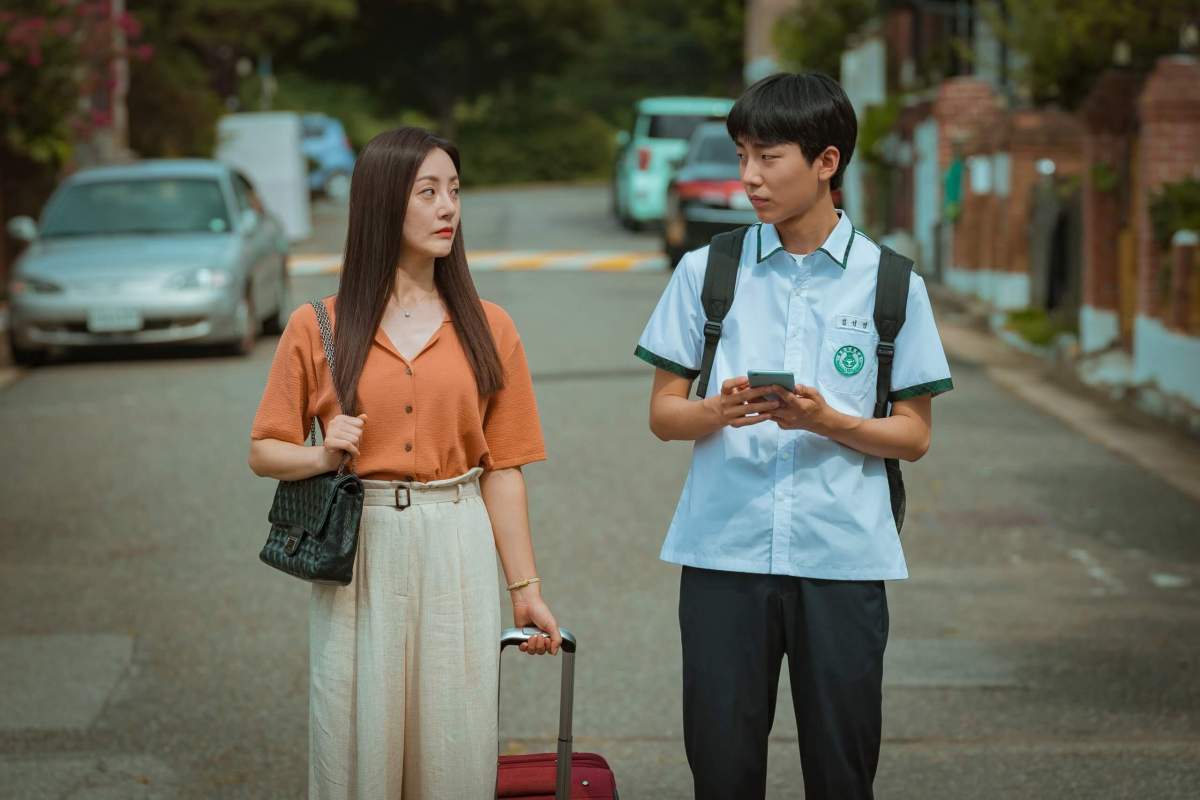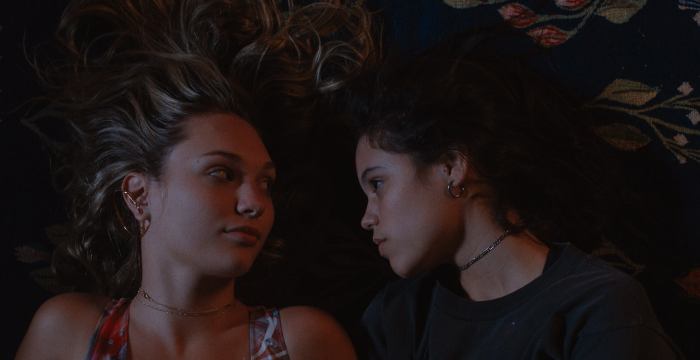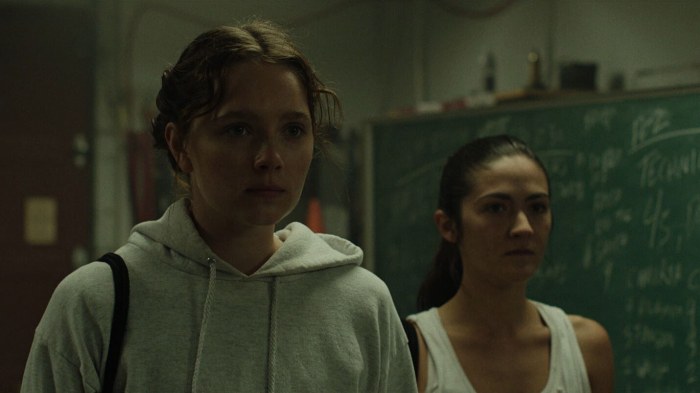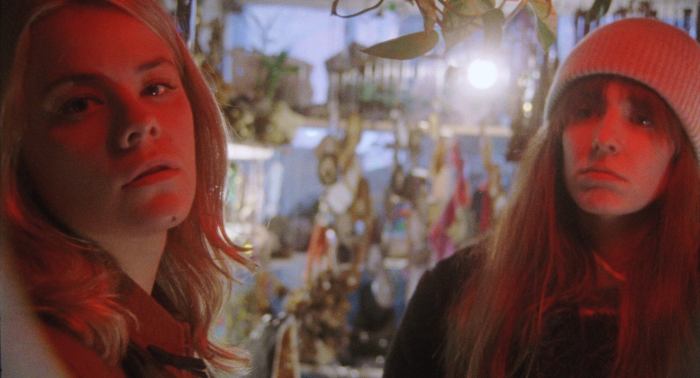Now celebrating its 20th anniversary, the New York Asian Film Festival shows more films than the New York Film Festival’s entire slate. (In the early years, it was possible to watch every film in the festival.) This year’s series comes at a crossroads: censorship in mainland China has destroyed the lively spirit of its own cinema, as well as Hong Kong’s, in favor of nationalist blockbusters, but South Korean films, TV shows, and music have attained a mainstream prominence in American culture — something no one would’ve expected when the festival began.
Its selection includes a variety of LGBTQ-themed work — Jun Robles Lana’s “Big Night!,” Erich Rettsadt’s short “Tank Fairy,” Ho Wi Ding’s “Terrorizers,” and a revival of Wong Kar-wai’s 1997 classic “Happy Together,” in addition to the four films reviewed below. The festival will also host a panel discussion about queer Asian cinema with filmmakers Ken Kwek, Rettstadt and Leon Le.
A profile of transgender actor/dancer/drag queen More, South Korean director Lee Il-ha’s “I Am More” queers the documentary by turning it into a musical. Introduced as the camera moves through a nightclub to her performance onstage, More performs several songs in elaborately colorful, stylized costumes. “A Bit of More” avoids documentary conventions. More’s voice-over detailing her youth and early experiences as an adult is never directly connected to the images, although the film shows her hanging out with her lover (a European man who misgenders her and speaks about her as though she were a cis gay man), going to rehearsals, and traveling to New York to perform in a celebration of Stonewall’s 50th anniversary.
The film covers some grim subjects, including her suicide attempt. A Pride Parade is thronged by homophobic protesters, and even pop music can’t drown them out. But the ultimate tone of “I Am More” is celebratory. Its musical performances emphasize More existing as her most outrageous alter ego in public spaces. She sings as she struts down the middle of a highway and stands on a packed subway platform wearing an enormous headdress. “A Bit of More” finds the truth of her life in a blend of fantasy and reality.
“Perhaps Love,” the directorial debut of actor Cho Eun-ji, shows a far more privileged side of South Korean life, but it puts a refreshing spin on the rom-com and melodrama. The notion of a gay stalker approaching a heterosexual man is fraught with pitfalls, but “Perhaps Love” takes it in a subversive direction. A midlife crisis movie, it follows 50-year-old writer and professor Hyeon (Ryu Seung-ryong) as he tries to put his career and loves back on track. Once one of Korea’s most popular novelists, he’s been out of ideas for years. He and his wife Mi-ae (Oh Na-ra) have divorced, but they still have sex, as their son Seong-keyong (Sung Yoo-bin) discovers, to his fury, when he walks in on them in bed.
One of Hyeon’s students, a gay man named Yoo-jin (Mu Jin-sung), has a major crush on him. Although Yoo-jin’s behavior makes Hyeon visibly uncomfortable, the two gradually become friendly enough to move in together. The film balances all these storylines capably, cutting between them. It also mixes tones adeptly, including moments of silly comedy but remaining concerned about its characters. While the film is full of sobering scenes, it ultimately wants Yoo-jin, Hyeon, and the latter’s family to be happy.
Singaporean director Kwek’s “#lookatme” receives its world premiere at the NYAFF. It does not lack for anger about homophobia, the prison system, or abuse committed in Christianity — it takes direct aim at Singapore’s criminalization of gay sex.
Its only light minutes come at the very beginning, when Sean (Thomas Pang) makes a few jokey videos in an attempt to launch a career as a YouTube vlogger. His girlfriend takes him to a Baptist megachurch where Pastor Long’s (Adrian Pang) entire sermon is a homophobic rant. Infuriated on behalf of his gay brother Ricky, Sean posts an attack on the minister, during which he sarcastically insinuates that Pastor Long has sex with horses, to his YouTube channel. The result leads to an 18-month prison sentence, as well as a world of hurt for Ricky and their mother.
The film is as grim as it gets without anyone dying onscreen. But while it’s well-intentioned, it’s also deadly afraid of subtlety and views ambiguity only as a sign of Sean’s mental instability. Even its good intentions turn back around against themselves: the fate of Sean and his family is so dark that “#lookatme” could be viewed as a cautionary tale suggesting the danger of speaking out politically isn’t worth it. The twist ending, which one can see coming from the first 20 minutes, does not help, nor does the film’s flat, TV-ready style.
The high point of my viewing was Kashou Iizuka’s “Angry Son,” a deeply felt drama about a teenager’s tormented relationship with his mother. The title character, Jungo (Kazuki Horike), is dating another teenage boy, Yusuke. But he lives with his mother, Reina, a Filipina immigrant who works as a bar hostess. (The film implies this is a thin veil for sex work.) They’re so poor that he wakes up to discover their electricity has been cut off. For a number of reasons, he resents Reina and sets off in search of the birth father he’s never known. “Angry Son” spins out complex characters – it echoes “Moonlight,” but it’s far more sympathetic to its protagonist’s mother. Jun resents the way he’s been othered because of his mother’s identity, with flashbacks to him getting called a “Filipino sissy boy” and having other classmates make fun of the lunch she prepared. Reina’s brashness becomes a way of expressing cultural differences between Filipinos and Japanese, and the choices she’s engaged in make economic sense, including marrying a man she met as a hostess.
Living for love is a privilege she doesn’t have, but her son seems to be able to achieve more. Iizuka plays out emotional confrontations in a detached style, filming key scenes like Jun finding out that Reina’s ex-husband was not his father in long shot. The film is moody without turning into a melodrama, taking Jun from adolescent anger to the verge of fatherhood in a few years.
New York Asian Film Festival 2022 | Film at Lincoln Center | Jul. 15th-28th






























